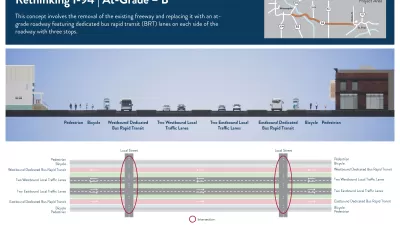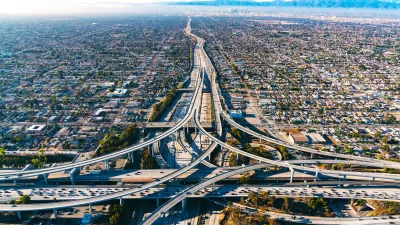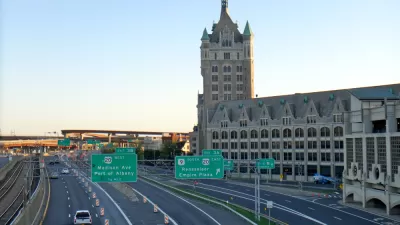Although the concept has recently received more national attention thanks in part to the federal Reconnecting Communities Act, cities have shown reluctance to support highway removal projects.

Although the concept of freeway removal is picking up steam as more communities call for a reversal of the car-centric policies that led to rampant highway construction over the last half century, the movement still faces some challenges. Pointing to an example from Dallas, Texas, Jared Brey writes that some cities and transportation departments are still less than willing to support full highway removal. Meanwhile, the $1 billion program for highway removal in the Infrastructure Investment and Jobs Act is “much smaller than originally envisioned, when it was included in Biden’s Build Back Better proposal with $20 billion of funding.”
Maintaining highways is a costly and time-consuming physical feat, but so is removing them. And it leaves open tough questions about what should be done with the new space that it creates: How it should be used and by whom, for whose benefit and profit.
As Brey writes, “In Dallas, TxDOT is hoping to move ahead with a plan to sink portions of I-345 but keep the highway intact,” citing the potential for additional congestion if the highway is removed altogether. “But there’s much more at stake in highway removal, from potential health benefits to adjacent communities to the possibility of ever-more-rapid gentrification.”
FULL STORY: Highway Removal a High Hurdle, Even With New Funding

Maui's Vacation Rental Debate Turns Ugly
Verbal attacks, misinformation campaigns and fistfights plague a high-stakes debate to convert thousands of vacation rentals into long-term housing.

Planetizen Federal Action Tracker
A weekly monitor of how Trump’s orders and actions are impacting planners and planning in America.

In Urban Planning, AI Prompting Could be the New Design Thinking
Creativity has long been key to great urban design. What if we see AI as our new creative partner?

King County Supportive Housing Program Offers Hope for Unhoused Residents
The county is taking a ‘Housing First’ approach that prioritizes getting people into housing, then offering wraparound supportive services.

Researchers Use AI to Get Clearer Picture of US Housing
Analysts are using artificial intelligence to supercharge their research by allowing them to comb through data faster. Though these AI tools can be error prone, they save time and housing researchers are optimistic about the future.

Making Shared Micromobility More Inclusive
Cities and shared mobility system operators can do more to include people with disabilities in planning and operations, per a new report.
Urban Design for Planners 1: Software Tools
This six-course series explores essential urban design concepts using open source software and equips planners with the tools they need to participate fully in the urban design process.
Planning for Universal Design
Learn the tools for implementing Universal Design in planning regulations.
planning NEXT
Appalachian Highlands Housing Partners
Mpact (founded as Rail~Volution)
City of Camden Redevelopment Agency
City of Astoria
City of Portland
City of Laramie





























